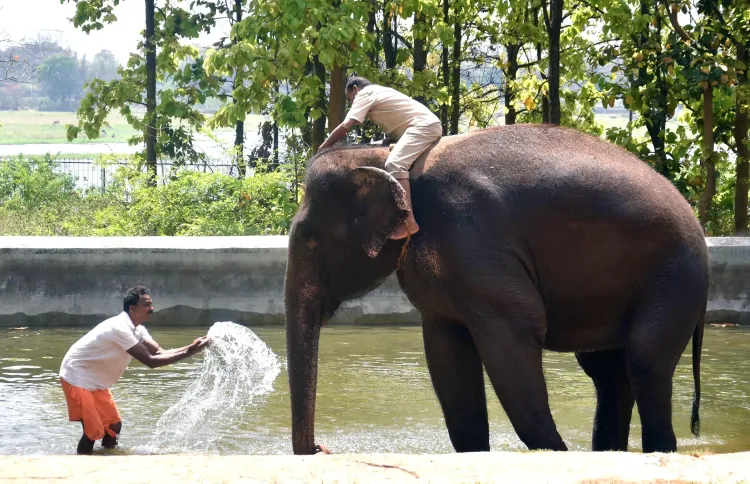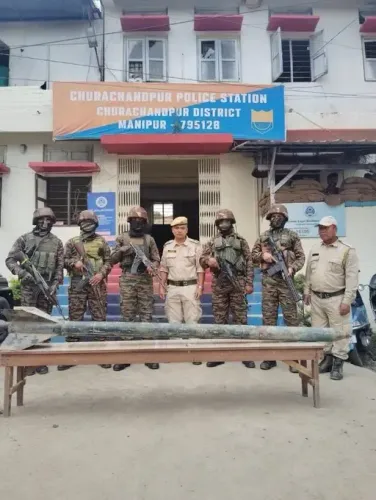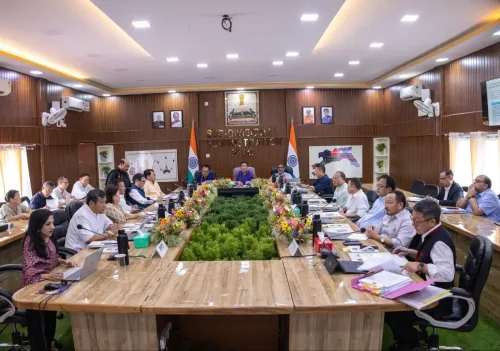Will TN Mahouts and Cavadis Transform Elephant Care in Thailand?

Synopsis
Key Takeaways
- International training for elephant handlers
- Focus on scientific methods
- Integration of traditional knowledge
- Improving welfare standards
- Cross-learning opportunities
Chennai, June 17 (NationPress) A group of fifteen mahouts and cavadis (assistants) from Tamil Nadu are set to embark on a week-long training programme focused on scientific elephant care and management at the Thai Elephant Conservation Center (TECC) in Lampang, Thailand, starting Tuesday.
This international training is part of a larger initiative by the Tamil Nadu government aimed at modernizing elephant management practices while enhancing the welfare of both the animals and their handlers.
The participants include staff from the Mudumalai and Anamalai Tiger Reserves, two essential forest areas where captive elephants are kept in Tamil Nadu.
They are accompanied by senior officials, such as P. Manikanda Prabhu, Assistant Director of Vandalur Zoo; Dr. K. Rajesh Kumar, a forest veterinarian from Mudumalai; and M. Megala, a forest ranger who will supervise the training and facilitate effective knowledge exchange.
The curriculum at TECC will encompass various facets of modern elephant management, including nutrition, healthcare, behavioral understanding, camp administration, and techniques to strengthen the bond between handlers and elephants.
Trainers at this renowned Thai facility are well-regarded for their ability to integrate traditional wisdom with scientific methods for captive elephant welfare, establishing it as a recognized institution worldwide.
Supriya Sahu, Additional Chief Secretary of the Environment, Climate Change and Forests Department, pointed out that this is the second group sent to Thailand.
“The first group of 13 mahouts and cavadis received training at TECC in 2023. Our goal is to foster cross-learning and bring back the best practices to enhance the care standards in our elephant camps,” she stated.
In Tamil Nadu, elephants reside in forest camps located in regions such as Theppakkadu in Mudumalai and Kozhikamuthi in Anamalai.
These camps are traditionally managed by tribal communities like the Malasars and Irulas, who have passed down their knowledge of elephant care through generations.
However, until now, most handlers have had limited exposure to scientifically-guided care models practiced globally.
“Training has mostly relied on traditional experience, lacking structured exposure to international standards. This initiative seeks to change that,” Sahu added.
She also emphasized that upon their return, the trained handlers are expected to share their experiences with fellow mahouts across the state, ensuring a broader impact. This training aims to establish a more humane and effective management system for captive elephants in Tamil Nadu.
aal/rad









